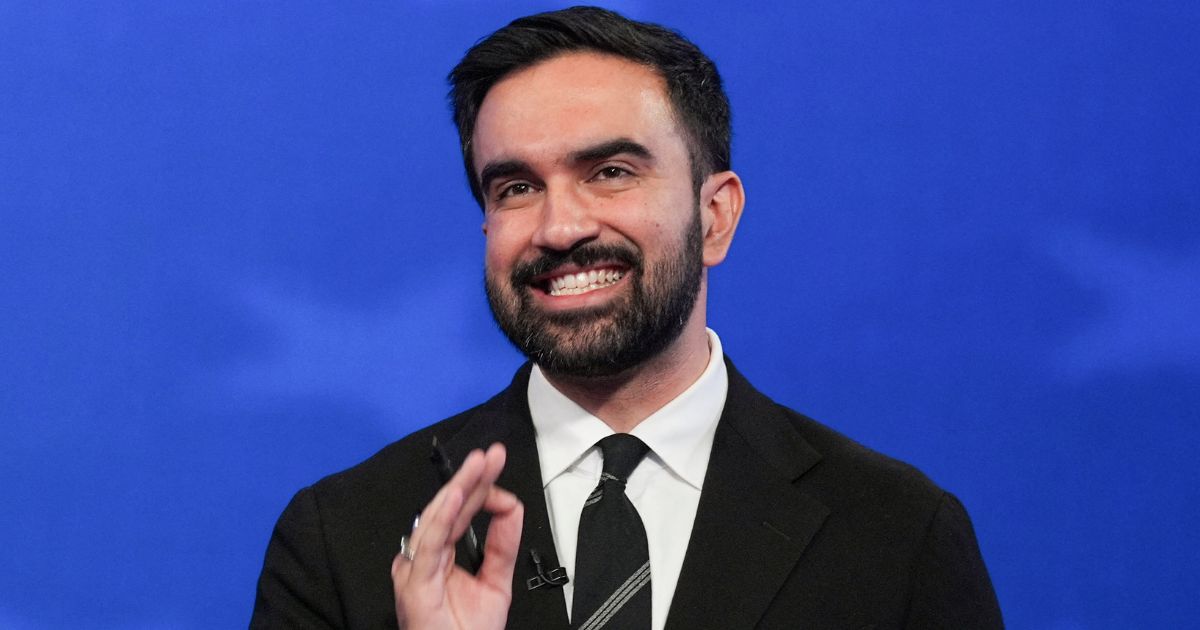New York City’s final mayoral debate offered little in the way of political fireworks—though it did provide more than a few moments that might make voters pause. For those who, like many, wish they could have skipped it entirely, here’s a detailed recap.
The debate featured three candidates: Democratic nominee Assemblyman Zohran Mamdani; former Governor Andrew Cuomo, who, after losing the Democratic primary, is running as a quasi-independent; and Republican nominee Curtis Sliwa, the longtime radio host and activist known more for his provocations than his governance record.
Sliwa, facing an unusually fractured Democratic field in a year that might have been ripe for a GOP breakthrough, struggled to present himself as a serious contender. His gaffe on stage—naming former Governor George Pataki as his favorite president before quickly correcting himself to Ronald Reagan—underscored the challenge of his candidacy. Cuomo, meanwhile, tried to position himself as a political heavyweight, claiming he could prevent former President Donald Trump from deploying the National Guard to New York City. Sliwa’s sharp retort—“You think you’re the toughest guy alive… you lost your own primary”—drew audible amusement from Mamdani and highlighted Cuomo’s vulnerability.
But it was Mamdani who sparked perhaps the most disquieting moment for New Yorkers. When moderators asked about the traditional obligations of the mayoralty, including attending the city’s myriad parades, Mamdani offered a response that departed sharply from the usual political script.
“There are many parades that I would not be attending, because I would be focusing on the work of leading this city,” Mamdani said. When pressed for specifics, he admitted, “I’ve already missed a number of those parades,” but could not provide a list.
For context, mayoral attendance at parades—ranging from cultural celebrations to veterans’ events—is widely considered a civic expectation in New York City. For many residents, a mayor’s presence at these events is more than symbolic: it signals engagement with the city’s diverse communities. Mamdani’s stance, framed as prioritizing administrative duties over ceremonial appearances, may resonate with some voters but is likely to unsettle others who view parade participation as integral to the role.
The debate concluded with no clear winner. Cuomo and Sliwa stumbled in ways both unforced and memorable, while Mamdani’s calculated dismissal of parade attendance may leave a lasting impression—and raise questions about how he intends to balance governance with the symbolic responsibilities of the office.
As New Yorkers head into the final stretch of the campaign, the debate highlighted one enduring truth: no candidate emerged unscathed, and each offered glimpses of vulnerabilities that voters will weigh carefully in the weeks to come.
During tonight’s New York City mayoral debate, Zohran Mamdani said there are many parades he would not attend if elected mayor. pic.twitter.com/lw7DJsaMCp
— Moshe Schwartz (@YWNReporter) October 17, 2025
“I have to say — I’m completely unsure which parades he might be referring to. Not a clue.”
View this post on Instagram
Oh, right, that one.
New York City would not be the city it is today without our Italian community!
So great to join the Federation of Italian American Organizations of Brooklyn for their annual Columbus Day Parade, renewing our shared bonds as New Yorkers for an even brighter future for all. pic.twitter.com/MjRhrgtdGD
— Mayor Eric Adams (@NYCMayor) October 12, 2024
There’s that one, too. Presumably, he’ll be intensely focused on leading the city on both Israel Day and Columbus Day, among other parade days—a reasonable assumption given his earlier statements.
The context of the question is clear: this was an opportunity for Mamdani to offer a more measured response, to reassure nervous voters before Election Day. Yet he did not attempt to hedge or provide nuance. By his own words, Mamdani signaled his priorities and perspectives in a way that leaves little ambiguity about his stance. For voters, this debate moment offered a direct glimpse of who he is and what he values.

